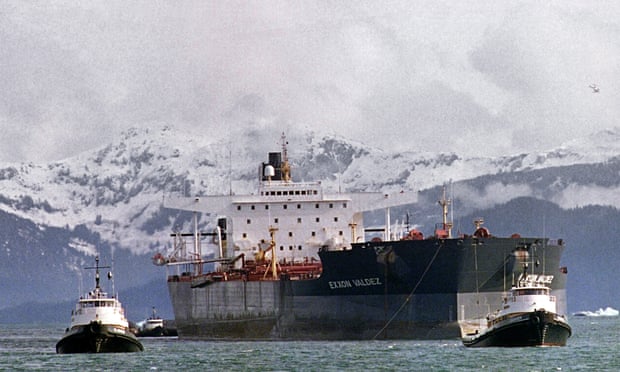 |
| English: Baltics in 1525, not long before Livonian war. (Photo credit: Wikipedia) |
 |
| Narva river, Narva castle on the left, Ivangorod castle on the right. The border between Estonia and Russia. (Photo credit: Wikipedia) |
"Russia seems doomed to continue its decline — an outcome that should be no cause for celebration in the West," Nye wrote in a recent column. "States in decline — think of the Austro-Hungarian Empire in 1914 — tend to become less risk-averse and thus much more dangerous." .......The Western side believes it is playing a game where the rules are clear enough, the stakes relatively modest, and the competition easily winnable. ..... Western support for Ukraine's government and efforts to broker a ceasefire to the war there, Moscow believes, are really a plot to encircle Russia with hostile puppet states and to rob Russia of its rightful sphere of influence. .... analysts will tell you, today's tensions bear far more similarity to the period before World War I: an unstable power balance, belligerence over peripheral conflicts, entangling military commitments, disputes over the future of the European order, and dangerous uncertainty about what actions will and will not force the other party into conflict. ..... Today's Russia, once more the strongest nation in Europe and yet weaker than its collective enemies, calls to mind the turn-of-the-century German Empire, which Henry Kissinger described as "too big for Europe, but too small for the world." Now, as then, a rising power, propelled by nationalism, is seeking to revise the European order. Now, as then, it believes that through superior cunning, and perhaps even by proving its might, it can force a larger role for itself. Now, as then, the drift toward war is gradual and easy to miss — which is exactly what makes it so dangerous. ...... the apocalyptic logic of nuclear weapons. Mutual suspicion, fear of an existential threat, armies parked across borders from one another, and hair-trigger nuclear weapons all make any small skirmish a potential armageddon. ......... Russia, hoping to compensate for its conventional military forces' relative weakness, has dramatically relaxed its rules for using nuclear weapons. Whereas Soviet leaders saw their nuclear weapons as pure deterrents, something that existed precisely so they would never be used, Putin's view appears to be radically different. ..... Putin has adopted an idea that Cold War leaders considered unthinkable: that a "limited" nuclear war, of small warheads dropped on the battlefield, could be not only survivable but winnable. ....... many theorists would say he is wrong, that the logic of nuclear warfare means a "limited" nuclear strike is in fact likely to trigger a larger nuclear war — a doomsday scenario in which major American, Russian, and European cities would be targets for attacks many times more powerful than the bombs that leveled Hiroshima and Nagasaki. ...... environmental and atmospheric damage would cause a "decade of winter" and mass crop die-outs that could kill up to 1 billion people in a global famine. ..... A full quarter of Estonia's population is ethnically Russian. Clustered on the border with Russia, this minority is served by the same Russian state media that helped stir up separatist violence among Russian speakers in eastern Ukraine...... Whereas a Russian invasion of Ukraine prompted Western sanctions, a Russian invasion of Estonia would legally obligate the US and most of Europe to declare war on Moscow. ........ "We'll be here for Estonia. We will be here for Latvia. We will be here for Lithuania. You lost your independence once before. With NATO, you will never lose it again," Obama pledged in his September speech in Estonia. ....... Less than 48 hours after Obama's address, Russian agents blanketed an Estonia-Russia border crossing with tear gas, stormed across, and kidnapped an Estonian state security officer, Eston Kohver, who specialized in counterintelligence. Kohver has been held illegally in a Russian prison for nine months now. ......... It was something like an act of geopolitical trolling: aggressive enough to assert Russian dominion over Estonia, but not so aggressive as to be considered a formal act of war that would trigger a Western counterattack. And it was one of several signs that Putin's Russia is asserting a right to meddle in these former Soviet territories. ........ Russian warships were spotted in Latvian waters 40 times in 2014. Russian military flights over the Baltics are now routine, often with the planes switching off their transponders, which makes them harder to spot and increases the chances of an accident. ...... in February, the US military paraded through the Russian-majority Estonian city of Narva, a few hundred yards from Russia's borders. ...... In early April, for example, a Russian fighter jet crossed into the Baltic Sea and "buzzed" a US military plane, missing it by only 20 feet. ............ the NATO military exercises in the Baltics meant to deter Russia were also contributing to the problem. .... Putin's plan for the Baltics was more sophisticated, and more calculated, than anybody realized. ...... "To destroy NATO, to demonstrate that Article V does not work, the Baltic republics of Estonia and Latvia are the best place for this," he said. "It's happening now, every day. Intrusions into the airspace, psychological pressure, the propaganda on TV." ...... Putin, rather than rolling Russian tanks across the border, would perhaps seed unmarked Russian special forces into, say, the Russian-majority city of Narva in Estonia, where they would organize localized violence or a phony independence referendum. ....... A handful of such unacknowledged forces, whom Putin referred to as "little green men" after they appeared in Crimea, would perhaps be dressed as local volunteers or a far-right gang; they might be joined by vigilantes, as they were in eastern Ukraine. ......... Would you risk the first major European war since 1945, all to eject some unmarked Russian troops from the Estonian town of Narva? ............ a variation on this scenario that I heard from others as well: that Putin might attempt to seize some small sliver of the Baltics quickly and bloodlessly. This would make it politically easier for Western European leaders to do nothing — how to rally your nation to war if hardly anyone has even been killed? — and harder to counterattack, knowing it would require a full-scale invasion. ........ the playbook from Ukraine, where Russia deployed its newly developed concepts of postmodern "hybrid war," designed to blur the distinction between war and not-war, to make it as difficult as possible to differentiate grassroots unrest or vigilante cyberattacks from Russian military aggression. ......... NATO is just not built to deal with such a crisis. Its mutual defense pledge, after all, rests on the assumption that war is a black-and-white concept, that a country is either at war or not at war. Its charter is from a time when war was very different than it is today, with its many shades of gray. ...... Russian state media, which has shown real influence in Western Europe, would unleash a flurry of propaganda to confuse the issue, make it harder to pin blame on Moscow for the violence, and gin up skepticism of any American calls for war. ...... Under a fog of confusion and doubt, Russia could gradually escalate until a Ukraine-style conflict in the Baltics was foregone, until it had marched far across NATO's red line, exposing that red line as meaningless. ........ Lukyanov worried that the US does not understand Russia's sense of ownership over Ukraine, the lengths it would go to protect its interests there. "It’s seen by many people as something that’s actually a part of our country, or if not part of our country then a country that’s absolutely essential to Russia’s security," he said. ........ If Ukrainian forces were about to overrun the separatist rebels, Buzhinsky said, he believed that Russia would respond not just with an overt invasion, but by marching to Ukraine's capital of Kiev. .......... "A war with Russia in Ukraine — if Russia starts a war, it never stops until it takes the capital." ...... Russia had set this as a red line out of the fear that a Ukrainian reconquest of eastern Ukraine would lead to "the physical extermination of the people of Donbas," many of whom are Russian speakers with cultural links to Russia. Russian state media has drilled this fear into the peoples of Ukraine and Russia for a year now. It does not have to be true to serve as casus belli; Moscow deployed a similar justification for its annexation of Crimea. ....... Moscow is notorious for its conviction that the US is bent on Russia's destruction, or at least its subjugation. It is paranoid and painfully aware of its isolation and its comparative weakness. A hostile and pro-Western Ukraine, Putin may have concluded, would pose an existential threat by further weakening Russia beyond what it can afford. ...... "Russia without Ukraine is a country, Russia with Ukraine is an empire." ..... traced this Russian government obsession with Ukraine back to Putin's political weakness at home, as well as Russia's sense of military insecurity against a hostile and overwhelmingly powerful West. ....... driven by a fundamental sense of insecurity .... "That, like the Soviet leadership, he has to try very hard to stay in power, and so there’s a tendency as his legitimacy declines to try to blame outside forces. And the problem is that when you try to look at the world in that conspiratorial way, there’s always a justification for subjugating the next set of neighbors." ........ Russian asymmetrical acts — cyberattacks, propaganda operations meant to create panic, military flights, even little green men — are all effective precisely because they introduce uncertainty and risk. ...... American and NATO red lines for what acts of "asymmetry" would and would not trigger war are unclear and poorly defined. ..... There is a certain fear in Russia, never far from the surface, that the only thing preventing the West from realizing its dream of destroying or subjugating Russia is its nuclear arsenal. (Three months later, Putin warned that the West wanted to tame the Russian bear so as to "tear out his fangs and his claws," which he explained meant its nuclear weapons.) .......... "After the Yugoslavia wars, Iraq War, Libyan intervention, it’s not an argument anymore, it’s conventional wisdom: 'If Russia were not a nuclear superpower, the regime change of an Iraqi or Libyan style would be inevitable here. The Americans are so unhappy with the Russian regime, they would do it. Praise God, we have a nuclear arsenal, and that makes us untouchable.'" ...........
Petrov waited in agony for 23 minutes — the missile's estimated time to target — before he knew for sure that he'd been right. Only a few people were aware of it at the time, but thanks to Petrov, the world had only barely avoided World War III and, potentially, total nuclear annihilation.
........ The US and Soviet Union, shaken by this and other near-misses, spent the next few years stepping back from the brink. They decommissioned a large number of nuclear warheads and signed treaties to limit their deployment. ....... Putin has taken several steps to push Europe back toward the nuclear brink, to the logic of nuclear escalation and hair-trigger weapons that made the early 1980s, by many accounts, the most dangerous time in human history. Perhaps most drastically, he appears to have undone the 1987 INF Treaty, reintroducing the long-banned nuclear weapons. ...... In March, Russia announced it would place nuclear-capable bombers and medium-range, nuclear-capable Iskander missiles in the Russian enclave of Kaliningrad — only an hour, by commercial airliner, from Berlin. Meanwhile, it has been testing medium-range, land-based missiles. The missiles, to the alarm of the United States, appear to violate the INF Treaty. ......... This is far from Putin's only nuclear escalation. He is developing more nuclear weapons, and calling frequent attention to them, as apparent cover for his aggression and adventurism in Europe. There are suspicions, for example, that Russia may have deployed nuclear-armed submarines off of the US Eastern Seaboard. ....... Putin appears to believe .. that he has a greater willingness than NATO to use nuclear weapons, and thus that his superior will allows him to bully the otherwise stronger Western powers with games of nuclear chicken. ........ Putin is acting out of an apparent belief that increasing the nuclear threat to Europe, and as a result to his own country, is ultimately good for Russia and worth the risks. It is a gamble with the lives of hundreds of millions of Europeans, and perhaps many beyond, at stake. ........ "Would America really risk a nuclear standoff with Russia over a gas pipeline?" Lucas asked. "If it would not, NATO is over. The nuclear bluff that sustained the Western alliance through all the decades of the Cold War would have been called at last." ........ the leader's willingness and even eagerness to take on huge geopolitical risk....... "This was the theory of the [German] Kaiser before World War I: the more threatening you are, the more people will submit to your will. That might be Putin’s logic, that he’s just going to threaten and threaten and hope that NATO bends. But the long run of international relations suggests that it goes the other way, where the more threatening you are the more you produce balancing." ......... There is a corollary in Russia's nuclear doctrine, a way in which the Russians believe they have solved the problem of Western military superiority, that is so foolhardy, so dangerous, that it is difficult to believe they really mean it. And yet, there is every indication that they do. ........ drop a single nuclear weapon — one from the family of smaller, battlefield-use nukes known as "tactical" weapons, rather than from the larger, city-destroying "strategic" nuclear weapons. ....... this is not a far-fetched option of last resort; it has become central to Russian war planning. ...... all large-scale military exercises that Russia conducted beginning in 2000 featured simulations of limited nuclear strikes. ....... It is difficult to imagine a more dangerous idea in the world of military planning today than of a "limited" nuclear war. ....... no one knows for sure whether Russia's military planners have sown the seeds for global nuclear destruction. ...... Ever since the fall of the Soviet Union, Russia's strategic culture has increasingly emphasized its nuclear arsenal, the one remaining legacy of its fearsome great-power status. It is a sort of Russian cult of the nuclear weapon, or even a certain strategic fetish. With nukes so central to Russian strategic thinking, it is little wonder Moscow sees them as the solution to its greatest strategic problem. ....... Russia sees itself as able to fight a war with the conventionally superior United States without losing, and that it can do this by using battlefield nuclear weapons. Under this doctrine, Moscow is deeming not only full-blown war against the US as imaginable, but a full-blown war with at least one nuclear detonation. ...... Adding a nuclear element to any conflict would also seem to increase the odds of NATO's Western European members splitting over how to respond, particularly if Russian propaganda can make the circumstances leading up to the detonation unclear. ..... Though some in his administration urged him to consider plans for nuclear conflict, Eisenhower, no stranger to war, rejected the idea as unthinkable. ....... A 2008 study (updated in 2014) on the environmental effects of a "small" nuclear war described what would happen if 100 Hiroshima-strength bombs were detonated in a hypothetical conflict between India and Pakistan. This is equivalent to less than 1 percent of the combined nuclear arsenals of the US and Russia. ........ The explosions, the study found, would push a layer of hot, black smoke into the atmosphere, where it would envelop the Earth in about 10 days. The study predicted that this smoke would block sunlight, heat the atmosphere, and erode the ozone for many years, producing what the researchers call without hyperbole "a decade without summer." As rains dried and crops failed worldwide, the resulting global famine would kill 1 billion people. ...... "We escaped the Cold War without a nuclear holocaust by some combination of skill, luck and divine intervention, and I suspect the latter in greatest proportion"
/cdn0.vox-cdn.com/uploads/chorus_asset/file/3830508/GettyImages-466421158.0.jpg)
Russia sounds like
Pakistan on nuclear weapons: too ready to use them. After the Soviet Union collapsed, America did not do a good job of strengthening democracy inside Russia. George HW Bush: unifinished job in Russia. George W Bush: unfinished job in Iraq.
At some point though, I think Putin might overstretch and implode domestically. But that point is not near. He is perfectly sane when dealing with powers like
China, cutting trade deals, etc.
This current tension is suspended animation that will likely not lead to nuclear war, but the tension will remain.
And all the time the Russian economy is getting hammered. That hastens Russia's decline in the long run. India is a bigger economy than Russia.
Another unfinished business of the end of the Cold War: a dramatic destruction of nuclear weapons on both sides.
Carbon is hard enough to deal with in the atmosphere, adding radioactive waste to it is unthinkable. There is no such thing called just a small amount. Chernobyl was small.
Even if Russia were a democracy like the US wants, it would still have its sphere of influence. Eastern Europe would legitimately be in Russia's sphere of influence. I feel like the US has disrespected that a little. Russia is a big country, live with it.
Perhaps some leader will emerge in Russia who will rise to the top precisely through that logic: a full embrace of democracy and the markets and globalization and the internet is the better way to seek global power status for Russia, and, yes, perhaps, double digit growth rates.
Ultimately America wins. But Russia wins bigger. That is what I like about democracy. I am a believer. Putin is an infidel, a democracy infidel.
Modi is on good -- excellent -- terms with both Obama and Putin. Perhaps he can engineer a deescalation.
We are in Cold War 2.0. The Cold War never ended because it was never properly buried.
The true worst case scenario is where Russia feels truly cornered, cornered enough to not only engage in saber rattling, but also want to do real damage to the US. It would help the
ISIS build a
dirty bomb and help take it near to the US shores. But that is an extreme scenario. I don't see that happening. Russia does not see America as an enemy, only a geopolitical competitor.
How about eventually expanding NATO to include Russia? Perhaps a democratic Russia. And vastly reduced nuclear weapons.
Russia will be a major book on Hillary's table.
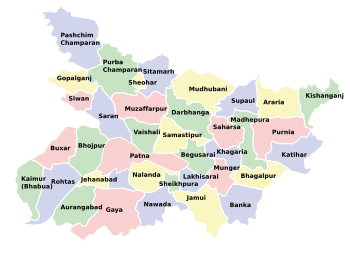
.jpg?itok=CDrBgrX2)










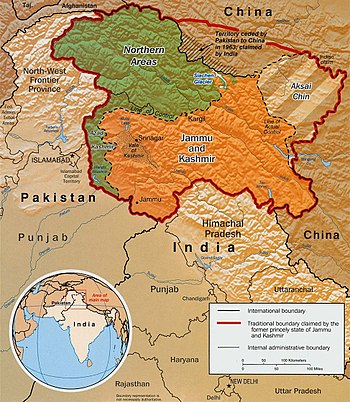
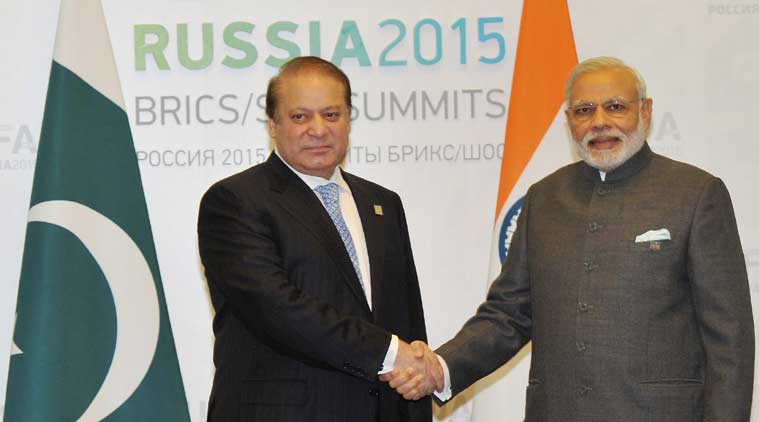








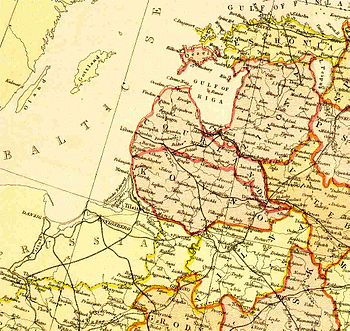
/cdn0.vox-cdn.com/uploads/chorus_asset/file/3830508/GettyImages-466421158.0.jpg)











